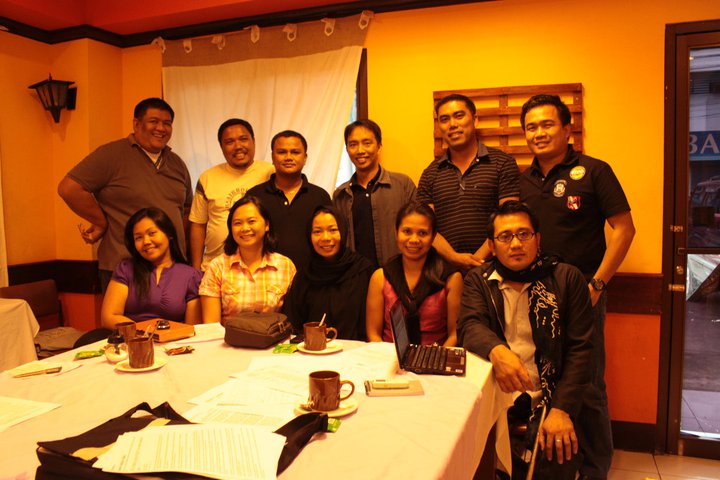DEFICIENCIES IN THE PHILIPPINE POLITICAL PARTY SYSTEM

By: Lito C. Lorenzana | October 3, 2013
President at Centrist Democracy Political Institute
1Loves.
0Comments.
0People boxed this.
In a much anticipated annual traditional event where a sitting President is accorded singular press coverage and expected to present his program of government in the near term and regale his nationwide audience with the past year’s accomplishment – either fictional or otherwise – newspaper columnists, political opposition stalwarts, lobbyists, political technocrats and ordinary citizens cling to every word hoping for the President to mention an advocacy.
This year’s SONA was no different but also familiarly the same; the same in form in the circus-like hype where lady legislators, bureaucrats and general hangers-on parade themselves in their best finery within range of the TV cameras in the legislative hall – peacocks prancing around – and the President’s allies all over the place putting a spin to a yet undelivered speech raising the level of suppressed expectation. Yet this year, different in substance in two areas of national concern: charter change and the Mindanao peace process. Nothing was mentioned substantially on both – two very important matters closest to the hearts of the peoples of Mindanao.
Perhaps this was President Pnoy’s way of telegraphing his concern for us people down south.
The eminent former Chief Justice Puno will speak today on the need for charter change. I will touch on a topic peripheral to his - the need for political reforms – particularly those that touch on our Political Parties.
Much has been said about each political party; each analyzed from outside-in to inside-out. Today however, we will be dissecting this perennial political puzzle - the Philippine party system.
The Philippines has the great distinction of being ‘the oldest democracy in Asia’! But I still cringe every time that term is used for the kind of government we have. In paper, yes that might be somewhat true; in practice, it’s more like ‘crazy’ than democracy. The oligarchy is still the most powerful force in Philippine politics; doing whatever they wish and paying whomever, to do their bidding in a mockery of democracy. Thus, I call our political system DEMO-CRAZY! I kid you not! I have been around long enough to know the difference and I hope to be around a little bit longer to see the change.
From the time the American Colonials technically ended their tutelage and handed over to us our government, we often wondered why the Americans did not pass on the Federal type of government.
They ordained for us a highly centralized structure with the president and vice-president directly elected by the populace but both can come from different parties. They also introduced the universal elections of 24 senators that comprised the upper chamber of Congress.
Our colonizers also failed to institutionalize that which seemed to be a successful linchpin to their Republican Democracy - the 2-party system
These modifications to the Philippine Government structure were alien to the experience of the American system which naturally evolved over the 200 years of their Republic after being under British Monarchy for a good part of 300 years.
It can be argued that our 1935 Constitution set our kind of model and implicitly allowed the emergence of the two-party system although drastically altered in the Marcos 1971 and the Aquino 1987 Constitutions.
Tomes have been written by political scientists explaining the need for continuing American control over the Islands under the guise of a new republic – but over time – this never did seem to add up.
I leave that to the academe to dig deep into the causes and effects of the Americans intentions.
I shall focus my thoughts on a portion of our system that I think has primordial importance in the development of a vibrant democracy – the need for real working political parties.
I need not make a case for the absence of real political parties in the Philippines for we have none. We instead created groupings that have acquired the language and façade of political parties and for years relied on their mirage, but every change in regime, although elected freely, brings about a new set of combinations, amalgamations, permutations and mishmash of elected officials – we call political parties.
What is really a political party, in a mature sense of the word and what it is intended to accomplish?
I shall quote from the all-knowing Wikipedia:
“A political party is a political organization that typically seeks to influence government policy, usually by nominating their own candidates and trying to seat them in political office. Parties participate in a political organization and electoral campaigns, educational outreach or protest actions. Parties often espouse an expressed ideology or vision bolstered by a written platform with specific goals, forming a coalition among disparate interests.â€
I prefer this version coming from the brochures and handouts of the Centrist Democracy Political Institute (CDPI), and I quote:
“Political Parties are the primary vehicles to gain political power by engaging themselves in political contests, primarily elections. The members and their leadership are expected to adhere to a set of principles and strategies written in a platform unique to that party. This espousal of a vision of governance defines the ideological identity of that party – and therefore, the electorate must be permitted a patent choice – as to who must govern them - based on what the candidates and their respective parties stand for.â€
No political party today in the Philippines exists in this mold. This gathering today must begin to look intowhy – and perhaps, decide that it is important enough to define the what – so together, this multi-partisan embryo of a political party will know where to go from here.
With the myriad of deficiencies which plagued our political party system, let me just cite four (4) important preconditions toward the creation of real political parties.
· Dues paying membership;
· Internal democracy, structures and discipline;
· Ideology and distinctive platform of governance; and
· All these sanctioned by law.
I. MEMBERSHIP Membership in Philippine political parties is cursory at best. Members don’t pay dues and don’t have a real stake in them. Funds are personal contributions by the self-proclaimed candidates and party big wigs and members of the oligarchy. They therefore dictate who runs and what programs and platforms to present to the voters. There is no public accountability for the sources and uses of their funds.
There is no sustainable system of membership education uplifting them to a point where they understand the rights and obligations of citizenship, articulating their aspirations and hopes. The importance of their membership plateaus during election and wanes and ends after.
II INTERNAL DEMOCRACY Our political parties do not provide a clear procedure for nominating candidates nor do they provide for the membership to influence programs and platforms that are to be articulated by their candidates.
Internal rules guiding the behavior of members are non-existent and there is no clear path through which members can rise through the ranks.
Patronage politics is a major contribution to abandoning one’s party and the perversion of relationships. Political manna flows incessantly from the winning regime. Such is the aberrant centralized system we have today.
III IDEOLOGY & PLATFORM OF GOVERNANCE Except for the extreme left, the political parties are not distinguishable from each other in their approach to governance. Withstanding the hazy platitudes mouthed by candidates and demagogues during election time on poverty alleviation, eradication of corruption and enforcement of law and order – the air reeks with slogans – which pass for platforms.
IV POLITICAL PARTY REFORM & FINANCING LAW We have to evolve a system of sanctions and reward for political leaders to hold onto a political party. A law must be enacted making clear the parameters of a party that must be a repository of values of good governance, laying down its accountability to the public it seeks to serve and defining its prerogatives when it vies for political power.
We don’t have this today, but we have one in the making.
A MULTI-PARTISAN AGENDA FOR REAL POLITICAL PARTIES
* We expect our political leaders to articulate for us, as our representatives, our hopes and aspirations for a better life. These expectations are to be crafted by the leadership and lodged in a political party and translated into a party platform, distinguishable from each, so that we, the electorate, may differentiate between them even before their leadership are gifted the privilege to govern. * Mechanisms to correct party internal infirmities must be fashioned to be able to select or nominate the ones whom the citizens can vote for. In most mature democracies today, political parties have devised a nominating process (the USA have their primaries). * The dues that members pay should come from the individual members, not sponsored by a“patron†or groups. Payment of dues is a positive act of expression as a personal commitment to the party’s values, principles, ideology, mission, vision, objectives and programs for governance. * Sources and uses of funds aside from membership dues should be transparent coupled with strict accountability. There must be set limits for individual or corporate donations preventing the same to inject vested interest. A modicum of Government subsidy for parties could be considered once parties are truly institutionalized. * Constant feedback is needed from the populace for members and elected representatives to understand the changing realities on the ground; they need to conduct continuous dialogue with the populace and the institutions that govern them between campaign periods. * It must have its own rules to govern its internal democracy and internal discipline to enforce these rules for members to abide by and it should be the training ground for the future leaders of the Country. * Once elected, the representatives must exercise power consistently based on the philosophy of governance and values embedded and are articulated unequivocally on the written platform of the political party from whence they were elected. * Adopting this mechanism and a host of other methods and procedures by enacting laws on political party reforms may compel a drastic change in our political mind set. This can only benefit the governed in the long run.
At this point, let me digress.
Mr. Guenter Winands gave a short story about one of the major German Parties in one of the federal states whose elected members caused to pass a law favouring some business owned by that party (owning businesses by political parties are permitted by law). This became a minor scandal yet when exposed, the party lost its support from 30% to 3%. The voters punished this party. This can only happen in Germany.
Under German law, an elected member of the “Bundstagâ€, their parliament, loses his seat when he abandons his party. The party then has the option to replace him with another member in good standing. This is one provision we can emulate from Germany.
In Germany, it is impossible and unbelievable even verging on the ridiculous for a splinter group from the former majority party to leave the opposition and join the new majority unless it is in a legitimate coalition.
In the Philippines, it is heralded as a political coup of genius proportion and a virtuoso political strategy.
How I wish the Germans won the war and conquered the Philippines.
Ateneo de Davao University A Forum on Charter Change Saturday, August 13, 2011
- More From this Author
- Comments








